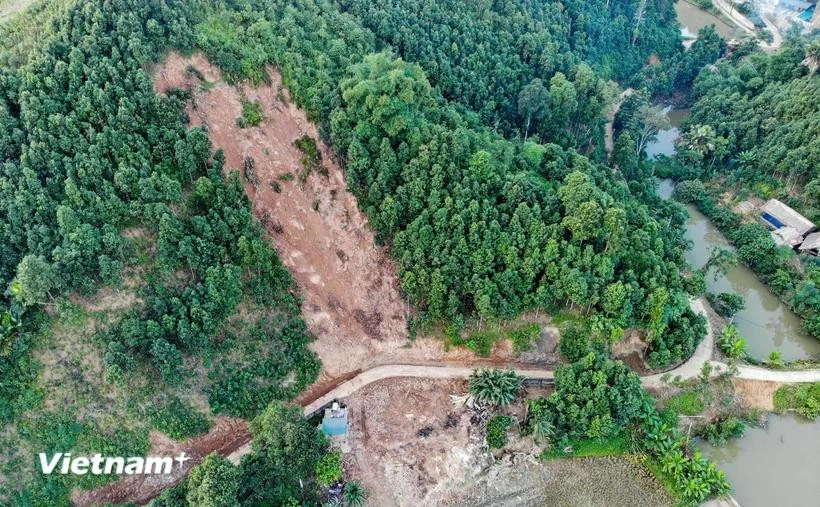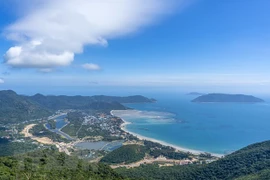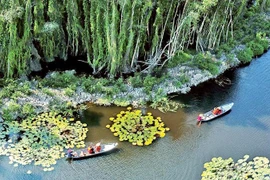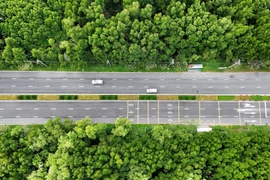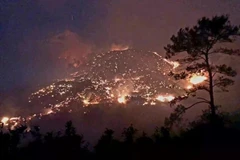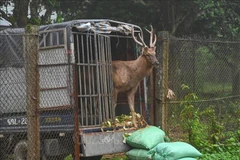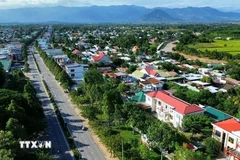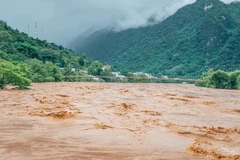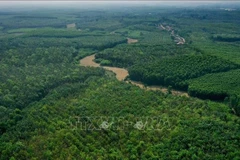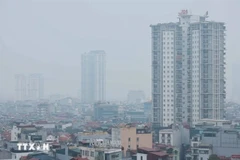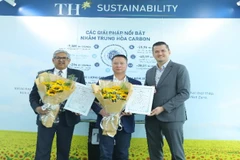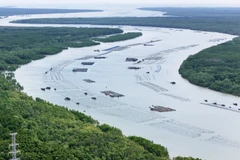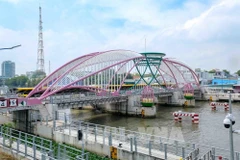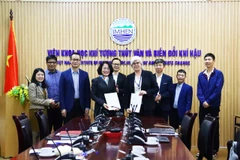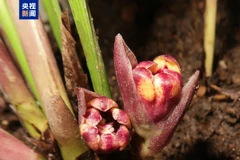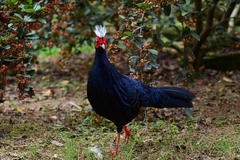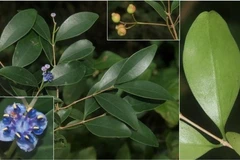Hanoi (VNA) - The United Nations selected "Forests and Food" as the theme for the International Day of Forests 2025 (March 21), urging people to properly recognise the critical role and immense potential of forests and preserve the "green home" for the future of life.
Especially for Vietnam, one of the countries severely impacted by climate change, restoring and protecting forests is increasingly urgent, thereby contributing to environmental protection and biodiversity preservation on the planet, as well as the survival of humanity.
Various challenges in forest protection, development
Director of the Administration of Forestry and Forest Protection Tran Quang Bao stated that the forestry sector has achieved many notable accomplishments in recent years. In particular, the forest area in the country has been restored from a low point in the 1990s, when the forest coverage was only 27%, to about 42% today.
Another important factor is the improvement in the legal system and production organisation within the sector. Positive changes in policies, particularly Directive 18 on closing and protecting natural forests, have helped curb the forest area contraction. Notably, the forestry sector has significantly contributed to exports, with nearly 1 billion USD, accounting for some 80% of the agricultural sector’s trade surplus and nearly 60% of the whole country’s surplus.
However, alongside the achieved results, a report from the Administration of Forestry and Forest Protection also highlights several challenges faced by the sector. One of the major difficulties is the lack of financial investment, with forest protection and development projects and scientific research not adequately funded.
A shortage of specialised personnel is another critical factor. In reality, the sector lacks highly skilled professionals in research, management, and sustainable forest exploitation. The forest protection force lacks proper incentives, and the forest ownership system is overly fragmented and lacks synchronisation.
Furthermore, the pressure of socioeconomic development, particularly the growing demand for infrastructure, urban, industrial, and tourism development has resulted in deforestation and encroachment on forest lands.
Notably, the increasing frequency of natural disasters, exacerbated by climate change, has caused negative impacts, leading to the loss of hundreds of thousands of hectares of forest, severely affecting forestry production.
According to Trinh Le Nguyen, Executive Director at People and Nature Reconciliation (PanNature), forest protection in Vietnam is facing many challenges which not only reduce the effectiveness of forest protection efforts but also creates a vicious cycle, making forest protection increasingly fragile.
Nguyen stressed that for a long time, the awareness of a portion of the population about the long-term value of forests has been limited. Many people, especially in remote and rural areas, do not fully understand the importance of forests to the environment and their livelihoods.
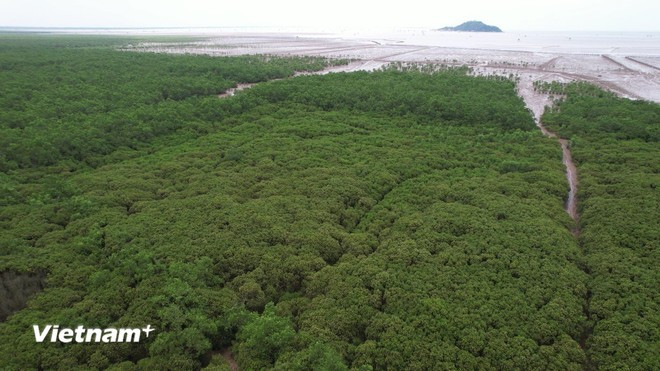
In many localities, forest management remains lax, with a lack of close coordination between relevant authorities. The exploitation of timber and forest products, as well as the conversion of forest land for industrial crops or infrastructure development, which provides immediate income, is often prioritised over the sustainable value of forests. This has increased the pressure on forest resources, he added.
Ensuring financial support for rebuilding the "natural home"
In light of the above reality, Nguyen said that after recent natural disasters, forest protection and regeneration need to become an urgent priority. In this context, increasing collaboration between localities and environmentally responsible businesses will not only enhance conservation effectiveness but also ensure the sustainability of future forest restoration projects, contributing to a green and sustainable Vietnam.
Amidst ongoing economic challenges, mobilising resources from the private sector and businesses is a strategic solution to provide substantial and stable financial support for afforestation and ecological restoration projects, the expert highlighted.
Mechanisms such as carbon credits, green bonds, and corporate social responsibility programmes could be useful tools to encourage their participation, alongside tax incentive measures.
When businesses fully understand the long-term benefits of ecological restoration, they will be more willing to invest heavily, not only because of social responsibility but also for their own sustainable development, Nguyen said.
In addition, to achieve sustainable forest development, the role of local communities and people living near forests is central to this effort. These people not only have a close connection with natural resources but are also directly affected by environmental degradation.
Therefore, to ensure effective forest protection and regeneration, it is necessary to make a balance between their economic development needs and the goals of environmental and ecological security. Empowering communities in forest management is also a key factor, along with the coordination and oversight by forest protection agencies. When local people are involved in decision-making processes and feel they are part of the solution, they will take greater responsibility for preserving forest resources, he added./.
